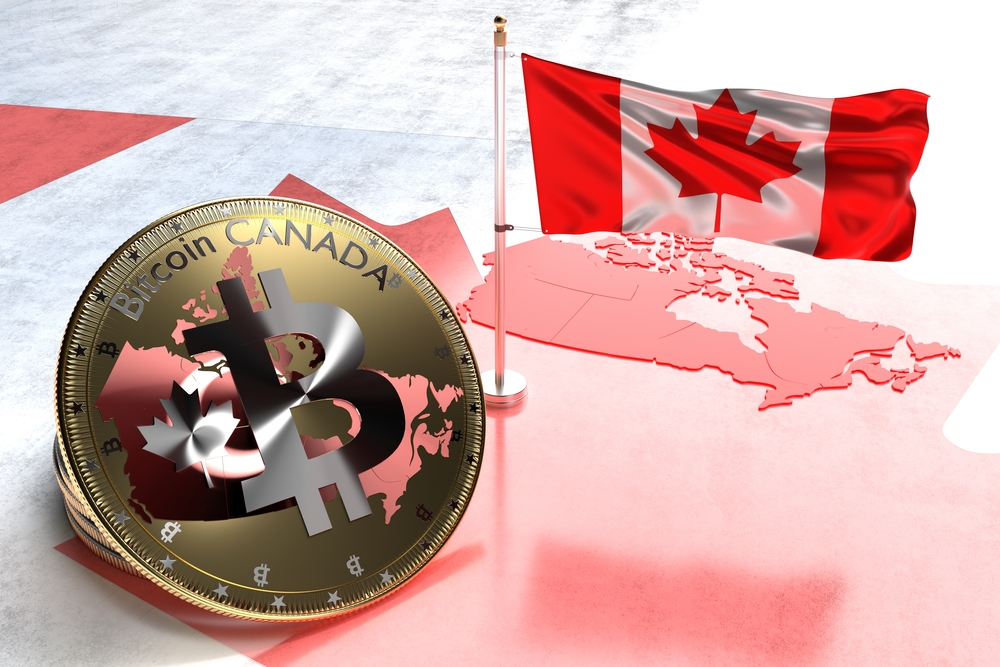Canada is only third to the USA and the UK when it comes to blockchain technologies. Convenient regulatory regimes, high-speed internet, and low energy costs are contributing to the countries growth in the crypto world. In addition, the use of Ethereum blockchain technology in different spheres, from health, education, government to finance and even space is exemplary.
Emin Gün Sirer, Cornell professor and computer scientist said: “The Ethereum nodes are both in the latency space, and also geographically, more distributed around the world, as opposed to Bitcoin nodes, which tend to be located in data centers.”
Light cryptocurrency regulation
Canada’s regulations for cryptocurrencies aren’t very strict. The country also offers multiple grants to startups. Last year the Canadian Securities Administrators were talking about applying the Securities Law to the cryptocurrencies. British Columbia has Canada’s first cryptocurrency investment fund. This year the first blockchain exchange-traded fund appeared on the Toronto Stock Exchange. Already in 2013, The Canada Revenue Agency (CRA) was taxing cryptocurrencies but there are several provincial and federal Research and Development tax incentives. Because CRA characterized cryptocurrency is a commodity, the exchange involving cryptocurrencies is barter exchange increasing either the capital gain or the business income. Cryptocurrencies are held as capital assets, are received as a payment for employment, and are also classified as business or hobby. After the classification is done the holders are taxed accordingly.
Unlike Russia, the EU or the US, Canada was first to acknowledge the power of crypto. Justin Trudeau started the implementation of cryptocurrencies as soon as he became the Prime minister. Crypto is not the official currency in Canada but the country allowed companies to adapt to crypto payments. The digital casino industry was the first that got the green light from the government. iGaming space took advantage of Bitcoin’s popularity and implemented it as a payment option. Bitcoin casino platforms became popular in 2017 and not only Canadians but also the international players approved the idea. Canadian casinos created games only for BTC payments and trends became immensely popular in a few months. Players love bitcoin casino games because they are free to manage funds through blockchain systems. Cryptocurrencies are free from all banking platforms and governments, so players are happy that they can freely manage, send and receive casino payments. Implementing bitcoin in the digital casino industry was a big success and the government made the same decision with other non-traditional business sectors in 2018/2019. The main goal in 2020 will be to control taxation of crypto along with adapting traditional business industries to bitcoin payments to go through the economic recession without issues.
Center for Blockchain innovation
One of the reasons Canada is a dominant country in the adoption of Ethereum is that Vitalik Buterin who invented the Ethereum blockchain resides in Toronto. Satoshi Nakamoto’s design of peer-to-peer, decentralized networks for bitcoin payments. A public Ethereum network started to function in 2015. It uses ether (ETH), the second most expensive currency.
“We are building a bridge between the human readability of cryptographic addresses and machine readability. While some others are working similar platforms that they feel may have their own advantages, the size of the development teams around Ethereum ballooned with initial spikes in interest to something larger than anything else in the space. With that, application development, innovation in scaling and other areas followed the trend, thereby creating a snowball effect” says Nick Johnson, the chief software architect of Ethereum Foundation.
Enterprise Ethereum Alliance, created last year, is a member of the Blockchain Research Institute, which researched the ways blockchain technology can be used in different spheres of life. BRI has partnered and the Information and Communications Technology Council (ICTC) of Canada are working on building a nationwide Blockchain ecosystem. The Bank of Canada is also exploring a National cryptocurrency.
Cryptocurrency mining
Hydro Quebec suggests that Quebec has an energy surplus equal to 100 Terawatt hours over 10 years and has the lowest electricity rates in North America. Cryptominers from all over the world, including China, are attracted to this place. China’s bitmain began mining in Canada in 2016. “Crypto miners planning to move to the region will not get cheap electricity from the government-owned utility Hydro-Quebec, as the utility may not have enough power to meet the demand,” said Quebec Premier Philippe Couillard. The utility is waiting for further notice from the government.

